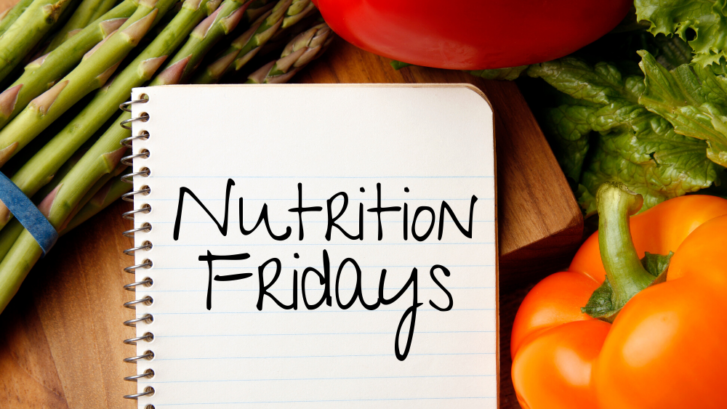Intermittent Fasting
Ever thought about skipping breakfast? New research on Intermittent Fasting suggests that you should!
Today we’d like to talk about a popular dieting routine known as “Intermittent-Fasting”. While fasting was widely considered to be a sin by health gurus, studies on fasting are beginning to come out with counter-intuitive results that suggest it might be what our body needs to stay healthy.
What is Intermittent Fasting?
Intermittent Fasting (shortened as ‘IF’) is a recent craze that has been shown to meet the fat loss goals of many individuals. To be clear, IF is not actually a diet in the sense of changing what foods you eat. Instead, it is a meal-timing plan in which you abstain from caloric intake for a large part of your day, and subsequently eat for the remainder of the time. While the main goal of IF is to achieve weight loss, there are far more physical benefits, as well as mental and cellular benefits.
One extremely important benefit is related to your body’s cellular rejuvenation. Fasting ignites a process called autophagy. Autophagy is a bodily function discovered through the 2016 Nobel-prize winning research of Yoshinori Ohsumi. It is the natural way by which our bodies recycle and rebuild old, defunct, and unhealthy cells in order to create healthy, more efficient cells.
The physical benefits are also provided via autophagy. When autophagy is engaged, your body becomes more efficient in its preservation of strong, healthy tissue. This, in turn, helps increase muscle tone, muscle density, and cardiovascular strength.
In terms of mental benefits, autophagy also has much to provide. As your body is deprived of food, it will be forced to become more efficient in its various functions, including mental focus. You will find a heightened ability to focus on the various tasks in front of you, accomplishing them with concentrated ease. While it is true that hunger will stop us from thinking clearly after an extended period of time, the research of Mr. Ohsumi shows that we can force our body to become more efficient in navigating such situations.
How do I start a fast?
For those of you who already know the definition of fasting, you may think the answer is simple: just stop eating. While this is true, there are of course ways to promote your fast in terms of efficiency and ease.
What you eat leading into a fast will have a strong effect on the quality of your abstention. You will find that if you eat high amounts of fiber whilst proceeding into a fast, you will remain satiated and without hunger for a longer period of time—allowing you to further the benefits of your fast. It is recommended that you eat portions of fat, fiber, and protein before fasting.
How long should I fast for?
The longer you fast, the greater benefits and results you will receive. In general, it is recommended that people start off with a period of fasting that lasts for 16 hours. This routine, known as 16-8 Fasting, means that you will abstain from consuming any calories for 16 hours, and then you will eat within a set period of 8 hours. Since we naturally fast while sleeping, and we sleep for a third of the day, half the fasting time is easy to get through.
An example program for 16-8 fasting would be not eating after 8 p.m., fasting until you go to sleep, continuing the fast when you wake up, starting to eat at 12 p.m., and then repeating.
The most efficient ratio is found to be at 16 hours for beginners, though the benefits will dramatically increase with each hour past the 16th. Those who have already adjusted to 16-8 fasting may find that they want to improve their results by maintaining a longer fasting period with a routine such as 20-4 Fasting, but this is not recommended for beginners.
What can I consume while fasting?
In short, nothing. You cannot consume calories while on a fast.
You can, however, drink black coffee and tea (no creamers or sweeteners). Squeezing fresh lemons into water is also fine. Those who enjoy their Bulletproof coffee (coffee mixed with fat/ oil) will need to abstain from this, as any source of calories will break your fast. To keep things safe, just stick to black coffee, tea, and water.
As a reminder, intermittent fasting is not a diet. It is a meal-timing plan, imposing restrictions on when you eat instead of what you eat. If you are interested in reading an actual diet plan, please feel free to check out our blog on the ketogenic diet – a diet that has been found to produce great results when paired with intermittent fasting.
So yes, if all you are worried about is the benefits of fasting, you don’t exactly have to worry about what it is you eat. Everything should be in moderation though, so do yourself a favor and don’t go out and eat three pizzas in one 8-hour period.
When should I work out?
It is usually recommended that you work out towards the beginning of your fast, typically in the morning after you wake up. Towards the beginning of your fast, you will still have more stored energy from food so you will be able to have a higher level of performance. Towards the end of your fast, you will be running on fumes and so your performance will diminish, as you will already be weak from a lack of nutrients and calories.
What should I be concerned about while fasting?
There are many common concerns related to fasting, from healthy hormone levels to muscle loss. In regards to muscle loss, IF is actually found to be key in helping the body preserve muscle mass. A study from the Journal of Translational Medicine found that those on IF for 8 weeks actually lost more fat and maintained their muscle mass as compared to those on a diet with zero time restrictions.
Women will tend to find it slightly more difficult to stick to IF due to their reproductive need for a higher body fat percentage as compared to men. While it shouldn’t be much of a problem in the long run, it is recommended that women start off with fasting for only 12 to 14 hours instead, and then slowly build their way up to maximize their fat loss potential.
Please remember that whenever you start a new diet, it is always recommended that you first check in with your doctor. If you are interested in more reading material regarding nutrition, please check out our other Nutrition Fridays articles.

